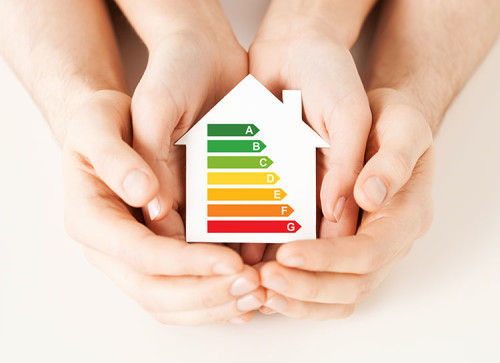Living off the grid is the dream of many people in the U.S. I can tell you that I have thought about it many times. Imagine not having to pay a dime for electricity, water, or heat. Sounds great, right? But it’s not entirely true… while you would not have to pay a dime to companies that provide those things, you would have to pay a lot of money to set up an off-grid home.
Living off the grid is better for the environment and your health but for many it’s prohibitively expensive. That’s why many people decide to live “lower on the grid” which is a far more practical possibility. It involves taking your current living situation and making adjustments that allow you to save money and the environment.
So, how does one live lower on the grid? Here’s a few tips we can all try around the home!
Appliances
When it comes to appliances, you should always consider an Energy Star approved one. Energy Star is a voluntary program under the US Environmental Energy Agency that encourages individuals and businesses to save money and the environment by considering replacing old appliances with more efficient ones. You can expect to pay more for an Energy Star appliance, but you will save money in the long run.
Purchasing an Energy Star approved appliance is just the first step. Here are some of my tips to further help you to live lower on the grid.

- Fridge — Of all the appliances in your home, the biggest energy hog is your fridge. Consider purchasing a fridge without a cold water or automatic ice dispenser. Sure, they are convenient features but they significantly add to your electricity usage due to cold air leakage.
- Dishwashers — Never run your dishwasher with a partial load; they use the same amount of water regardless so it’s much better to just load it up. Also, there is no need to pre-rinse your dishes. It wastes water and electricity. Instead, scrape large chunks of food and let the dishwasher do the rest. Today’s dishwashers do a much better job of grinding food particles and expelling it down the drain than their predecessors.
- Washers and Dryers — Like your dishwasher, clothes washers run more efficiently when you fully load them. Secondly, regardless of what others may say, washing your clothes in cold water will still get them just as clean as warm or hot. And you will save energy by not having to heat the water. Finally, consider a front load washer. You will pay more upfront, but they use less water—about 60 liters less— and less detergent than standard top loaders.
In the case of a clothes dryer, look into dryers that feature moisture sensors that will stop automatically when a load is dry. Even better, think about forgoing a dryer altogether and hang your clothes outside or on an indoor drying rack.
Keep it Local
- Shopping — When you shop at your local stores, you are supporting your local economy and helping the environment. Shopping at large shopping centers might save you a little money but often comes with a lower quality product. And think about the environmental impact those large stores have. Even if you forget about the costs of their utility bills, their transportation costs are astronomical, both money and environment-wise, especially with many products coming from overseas.

- Finding Good Rates for Electricity — While you are saving money and the environment by using electricity more efficiently (or switch to using things like this mobile charger that runs on air and hydrogen), you can save even more money by finding an electricity company that offers low rates. And, if you find a company that also supports the communities they do business in, it’s even better. For example, ComEd Energy in Illinois—which can be found on the web at LocalElectricityCompanies.com—offers alternative energy delivery designed to save you money while also supporting local communities where they offer service.
Get the Word Out
So while you’re waiting to go fully off grid, you can start living lower on the grid now. Free from paying utility companies anything would be a fabulous way to live life…but first you’ve got to give up electricity or invest in alternative energy sources.
Some might think living lower on the grid is a failure but I think that any time you save money and create a smaller impact on the environment, you have succeeded. Encourage everyone you come to be around how you can save money and help the environment at the same time. It is worth every penny and kilowatt.


